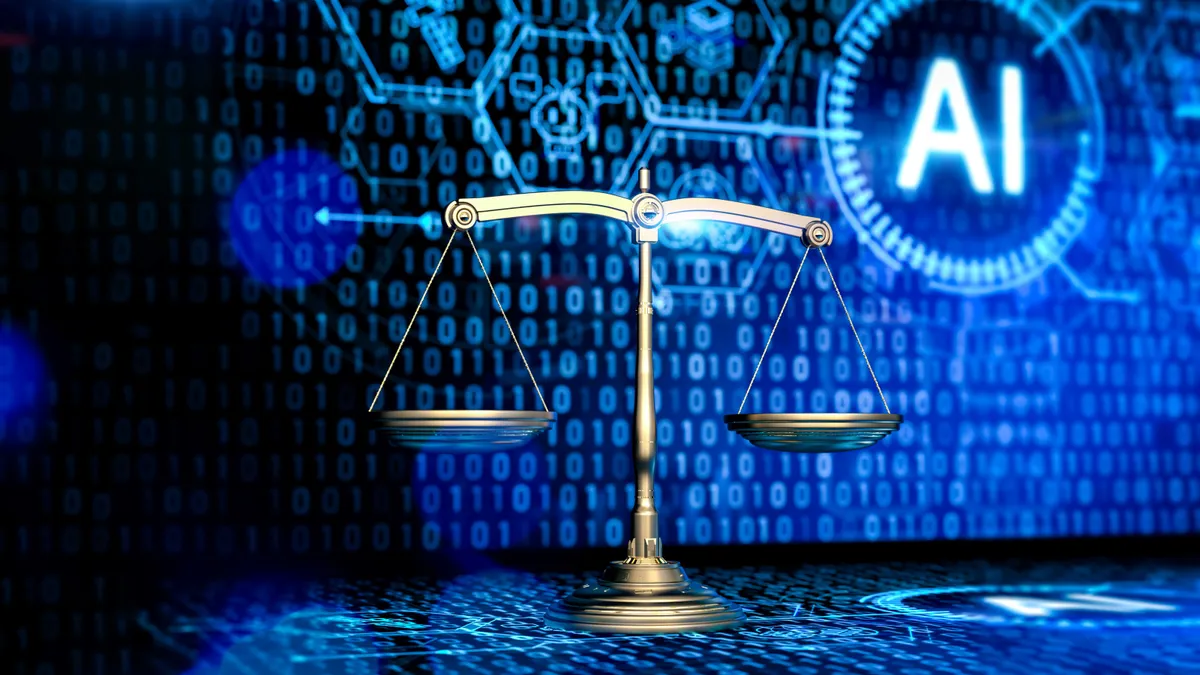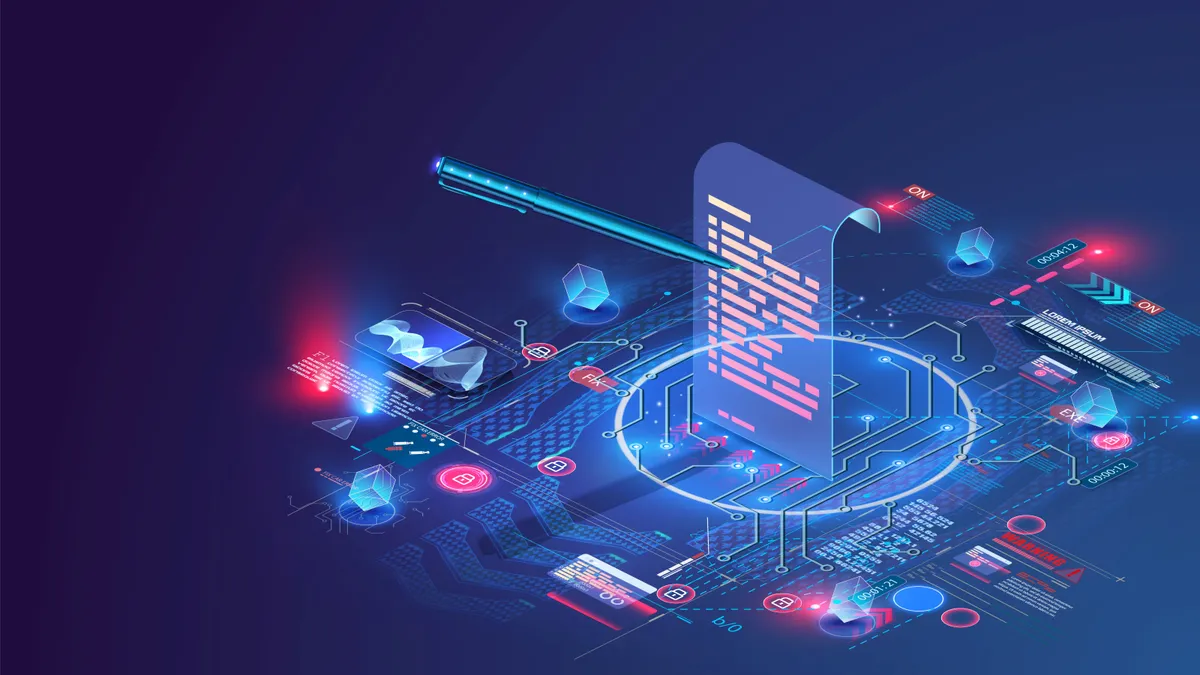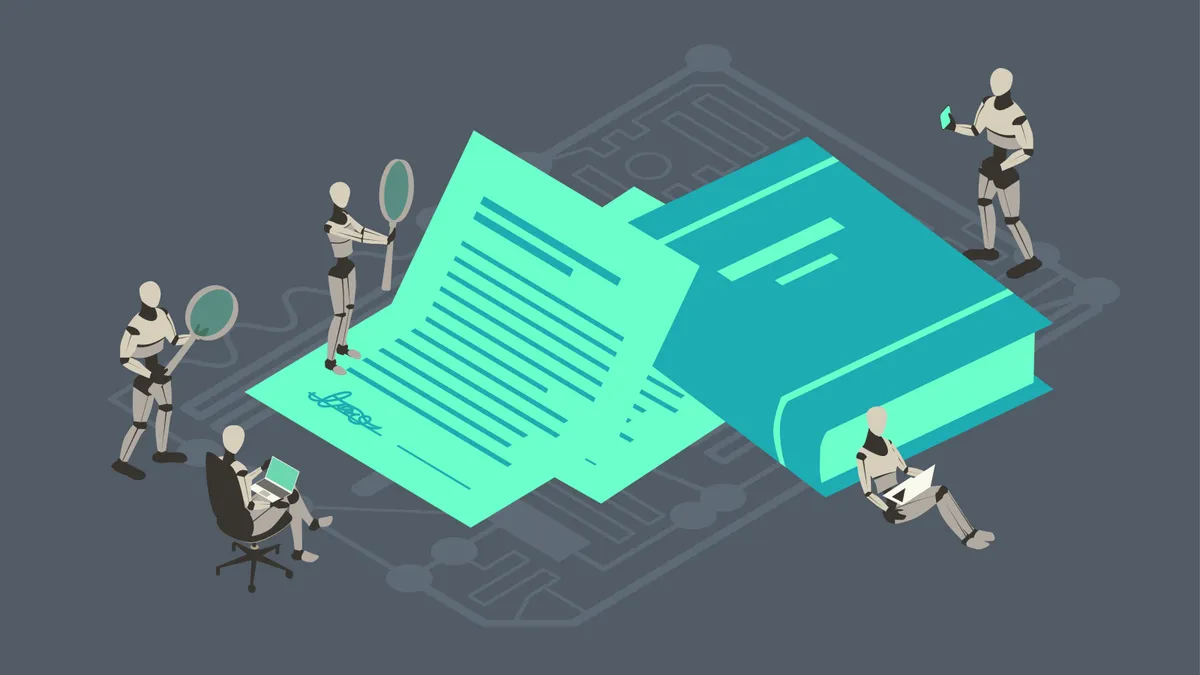Olga Mack is a VP at LexisNexis and CEO of CounselLink CLM (formerly Parley Pro). Views are the author’s own.
Gone are the days in which legal departments provide only traditional in-house legal services, like contract management or employment law.
Now, businesses are operating in an increasingly digitized, data-driven world, and it’s time for legal departments to catch up and position themselves more centrally in the company’s strategic technology plans.
A specialized, multidisciplinary, technically adept data division within the department can help them do just that.
A tech-enabled legal department
The first step towards building out a data division within legal is to expand the data literacy of the whole department — to bridge the gap between traditional legal knowledge and data-relevant expertise across the entire team.
As data analytics, AI, generative AI, and other developments expand their reach in every industry, the complex legal issues surrounding them grow as well.
As such, it’s up to GCs to improve the tech and data proficiency of their teams so they can keep up with the constantly-changing data privacy, regulatory compliance, cybersecurity and IP legal landscapes.
Legal departments can rise to the challenge by providing legal professionals with learning and development programs that focus on technology and data-relevant skills.
That training should include learning around legal technology tools, data analysis and data visualization, as well as higher-level learning around data strategy (e.g., best practices for protecting IP or mitigating cybersecurity risks with vendors).
Given the pace and breadth of innovation, that training should be ongoing to keep skills up to date.

A tech-enabled, data-literate legal department is better equipped to help businesses manage risk and navigate evolving legal requirements and regulations, as well as promote responsible data practices that keep pace with a rapidly changing world.
By growing their technology and data-relevant skills, legal departments can also streamline their own operations, enhance efficiency and improve their overall productivity.
Cross-collaboration and data mapping
Moving into the future, as businesses continue to digitize and automate their operations, legal departments need to get closer to the data and more involved in the company’s technology strategy so they can quickly and reliably weigh in on data-related legal issues.
Creating and maintaining an up-to-date data map can help legal professionals understand how data is moving in and out of the business — making it easier to identify risk and to rapidly implement remediation measures when something goes wrong.
For example, during litigation, legal can use the data map to conduct more efficient and targeted e-discovery.
Or, when a data breach occurs, legal can turn to the data map to quickly identify impacted systems and confidently manage associated legal obligations, such as notifying impacted parties.
Legal departments should be intimately involved in data-mapping exercises with their technology and business counterparts so they can provide legal perspective when making decisions about the company’s data ecosystem — and the cross-collaboration shouldn’t stop there.
Cross-collaboration with in-house data science and IT experts — who have expertise in areas like data science, data security, AI and more — can facilitate a more comprehensive and pointed approach to legal analysis and execution.
As such, next-generation legal departments should focus on fostering strong relationships with other departments and other disciplines, especially data and IT, to ensure that the company is covered from all angles as it moves deeper into the digital age.
Alternatively, legal departments can hire their own data and IT specialists to reach the same multidisciplinary result.
Ethical data practices
As businesses become increasingly digitized, more and more questions around data management are being raised.
The public has become more conscious of how organizations handle their data. High-profile data breaches, biased algorithms and misuse of personal information have eroded public trust and damaged company reputations.
The recent rise of generative AI, in particular, has brought renewed attention to these ethical questions.
In addition to advocating for legal and regulatory compliance, next-generation legal departments are also tasked with managing, advising on, reporting and defending the company’s comprehensive data position in today’s global business environment, particularly around data ethics and the care of customer data.
In this new data landscape, businesses need an elevated, more-ethical approach to data control and protection — and they need to develop standards that far exceed the minimum standards outlined in law and regulations.
Organizations should strive for responsible and principled data governance practices that promote fairness, transparency, accountability, privacy and cause no harm to individuals or communities.
Having a multidisciplinary data team that brings a breadth of expertise — not just in the law but also in data science, data analysis, computer ethics, philosophy, business strategy and more — can help legal departments address these complex, nuanced ethical data challenges.
An agile, data-savvy legal team representing a broader range of technical specialties will be better equipped to respond to the dynamic public sentiment that often changes faster than law.
Such a team will also be able to build a culture of ethically sound data practices that protect all stakeholders and help maintain a positive public reputation for the business.


















